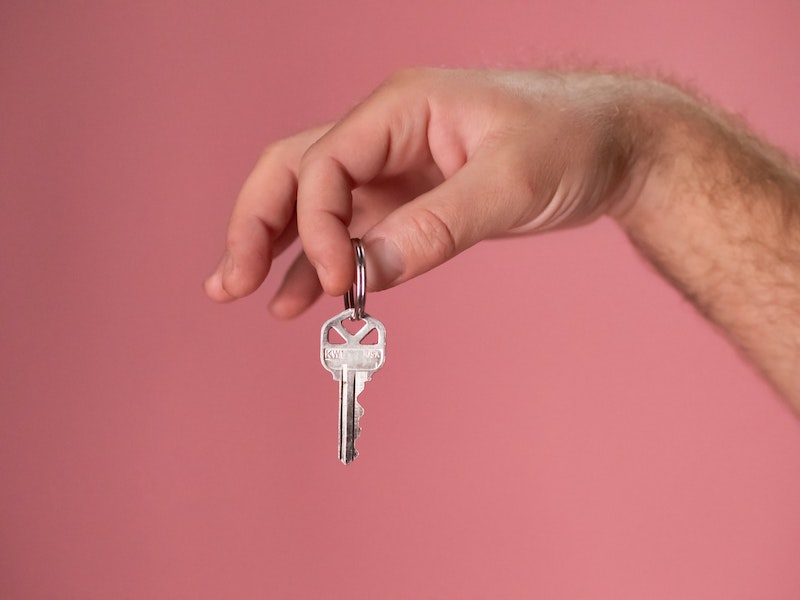It is possible to buy a house if you have no job, but you will need to have other forms of income or savings and be able to effectively demonstrate that you can afford any home loans you want to take out.
Can You Get a Mortgage if You Are Unemployed?
If you are looking to take out a mortgage to buy your house, and you are currently unemployed, you may struggle. Lenders typically look at a borrower’s income or annual salary in order to assess how much money they are willing to loan. Within this, the majority of lenders will ask for a minimum income.
However, some mortgage providers are more flexible than others in how they define “income”. If this is the case, these lenders may accept savings accounts or even benefits as long as you can prove that your monthly income is sufficient to meet payments.
Most traditional banks and financial institutions will only accept full-time employment as a source of income.

If you are unemployed, you will usually need to have a good credit history as well as be able to put down a decent amount of down payment in order to secure a mortgage.
Often, no-income loans, including mortgages, will come with higher interest rates and you will not be able to borrow as much money.
Can You Get a Mortgage When on Universal Credit?
If you are on Universal Credit, you may be able to get assistance with mortgage payments but only if you have been claiming it for more than 39 weeks consistently. However, if you are on Universal Credit at the time of applying for a mortgage, it may affect your eligibility and likeliness of being approved.
How Do You Qualify for a Mortgage When You Are Unemployed?
If you are applying for a mortgage and cannot prove employment, you will need to be able to demonstrate some source of regular income which could include savings. Lenders will also require a good credit history. Regardless of whether you are unemployed by choice, such as taking retirement, or have lost your job, you will need to prove to any lender that you can make regular payments on time.

One way that you may be able to qualify for a mortgage whilst unemployed is by having a co-signer; this might be a relative, spouse or friend. This co-signer will need to be employed or have a high net worth. Co-signers make the mortgage less of a risk for the lender as they are securing the loan with their income and credit history.
Is It Possible To Get a Mortgage on Benefits?
If you are currently receiving benefits, it is unlikely that your lender can use your unemployment income in order to qualify for a home loan. More often than not, lenders require you to prove a minimum of two years of income from a reliable source.
However, if you are receiving benefits it may still be possible to get a mortgage under the right circumstances. This will be contingent on many variables including credit history and alternative sources of income.
If you have a regular source of income, assets or savings, in addition to the money you are receiving through benefits, you are more likely to have your application approved.
For lenders, their biggest concern is whether or not a borrower is able to meet their monthly mortgage obligations. Thus, if the benefits are sufficient to meet payments, and borrowers can demonstrate an otherwise satisfactory financial profile, lenders may indeed approve the mortgage.
Before putting in a loan application, you should check whether the lender accepts benefits as a valid source of income as an unsuccessful application could negatively impact your credit score. Working with a mortgage advisor could help you find the right lender and best deal for your personal circumstances.
Which Benefits Are Accepted by Mortgage Lenders?
Not all benefits will be accepted by mortgage providers and eligibility may vary between lenders. Here are just some of the benefits that mortgage lenders tend to accept:
- Attendance Allowance benefit
- Carer’s Allowance benefit
- Child’s benefit
- Disability Living Allowance (DLA)
- Maternity Allowance benefit
- Pension Credit benefit
- Widow’s Pension benefit
- Working tax credit benefit
Within this, lenders may accept certain benefits but only as a proportion of income rather than as the full amount of proof of income. Certain lenders may have additional specific criteria that you will need to meet before they accept your benefit.
How Can I Demonstrate Eligibility for a Mortgage if I Have No Job?
In order to take out a loan when you are unemployed, you will still need to demonstrate how you will be able to meet repayments and show lenders that you have a solid credit history.

If you are unable to prove employment, you will most likely need to share the following information:
- If you have missed any utility bill payments
- How much credit you currently have available
- If you have previously been declined for loans and how many times
- If you are on the electoral roll
Lenders will only accept mortgage applications for the unemployed if they can be sure that you are able to meet monthly repayments. Demonstrating that you are able to make payments on time and can manage debt in a responsible manner will make you more likely to qualify for a loan.
Can I Buy a House Without a Mortgage if I Have No Job?
Although mortgages are the most common way to purchase a home, there are other ways to purchase a house without the need to take out a loan, including the following…
Cash purchase: If you are fortunate enough to have enough funds available to purchase a house outright, you may be able to save enough for a cash purchase. This is especially possible if you are a two-income household and can live comfortably off a single income for a few years.
In the case that you have no job, you will need substantial savings in order to afford this option or will need to be buying a house with someone who has enough income to support you both for the foreseeable future.
Sell your home to purchase another one: If you are already a homeowner and want to downsize or change living situations, you can sell your existing property and use the profit to purchase another home. This is only really a possibility if you have plenty of equity in your current home.
This can be a great option for those looking to downsize or move to a more cost-effective area where you could get more for your money.
Use an investor: If you are looking to buy a house or property as an investment property, you may find it difficult to secure a mortgage, especially if you have no job.
Getting an investor to cover the expense of buying and renovating the home can be a good option. Many investors will be able to provide cash up front in order to buy the property and pay for any home improvements. Once the property is flipped and sold, you will split the proceeds with the investor.
